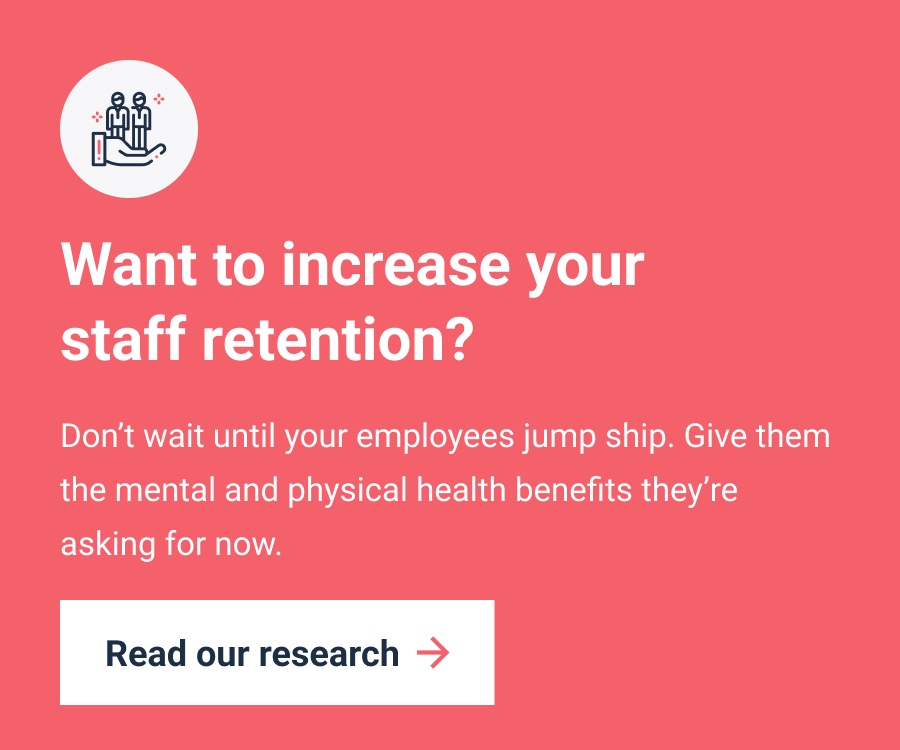Generation Z employees entered the workplace during a time of unprecedented uncertainty. In fact, much of this generation graduated during global lockdowns. They also interviewed for jobs virtually and onboarded to hybrid and remote-first workplaces. By 2025, they will account for nearly one third of the total global workforce.
Nearly half of Gen Z cite their long-term financial future as the primary cause of stress. With a growing voice and no certainty around their future Gen Z is standing up and asking hard questions about work.
But what exactly do Gen Z want at work, and is your business ready?
Leave traditional office roles in 2019
Three quarters of Gen Z employees prefer a hybrid or remote-working model. In fact, this generation is so steadfast on flexible working that they’re willing to quit rather than return to the office.
Hybrid working models offer benefits to both sides. For employees, it reduces living costs and gives teams their time back. It also contributes to greater mental wellness and is the primary reason why 20 percent of Gen Z choose to stay in their current role.
For employers, hybrid working creates trust between employers and employees. It boosts productivity, too. According to Fast Company, remote working led to a 13 percent increase in productivity during the pandemic.
Office culture is dead. Offer Gen Z the autonomy to choose the “where” of work.
Invest in training to drive engagement
According to Deloitte, "To attract Gen Z, employers must be ready to adopt a speed of evolution that matches the external environment. That means developing robust training and leadership programs, with a real and tangible focus on diversity."
Education is the key to Gen Z engagement at work. So much so, in fact, that nearly a third prioritise learning and development opportunities as the primary reason to choose an employer. Offering a diverse range of development opportunities is an excellent way to drive retention. It also promotes happiness at work. As you build out these programs, go beyond traditional “hard” skills and incorporate things like mental and physical wellbeing, too.
Ethics count for everything
According to Deloitte’s survey, Gen Z views on business’ societal impact dropped three points in 2022 compared to 2021. What’s more, this has steadily declined across the last five years.
Without a doubt, the ethical profile of an organisation is the difference between attracting and repelling Gen Z employees. Whether it’s standing up for animal welfare, human rights, or the environment, they want to know that the companies they work for act as a force for good.
If Gen Z feel that their work doesn’t contribute to progressing socio-political issues, they’ll disengage and look elsewhere. More than a third of Gen Z say they have rejected a job or assignment based on their personal ethics.
For employers, this signals an opportunity. Gen Z want to work for companies who go beyond their company values and who prove their ethics with direct action. If you can back your words up with action, you’ll likely see a bump in your retention rates. Actions really do speak louder than words.
Physical and mental wellbeing matters (a lot)
Since COVID-19, physical and mental wellbeing at work has become one of the most important factors that Gen Z employees look for when searching for a job. That said, more than six in 10 people say that the health-related benefits offered to them are generic, and that everyone gets the same.
Generic health benefits don’t work. People need unique care that’s tailored to them. For 28 percent of the Gen Z workforce, a personalised approach to employer healthcare would add a lot of value to their lives.
Access to the right mental wellbeing solutions creates more engaged, creative and productive teams. What’s more, it reduces business costs, too. According to Deloitte, for every £1 spent by employers on mental health interventions, they get £5 back in reduced absence, presenteeism and staff turnover.
Today's manager is a coach, not a leader
According to BambooHR, “Gen Z employees constantly seek validation and want daily communication.” Unlike Millennials, they need continuous support from managers that extends beyond simple pass/fail performance reviews. Managers must check-in often, offer thoughtful critique, and set up weekly feedback. They must also support employee wellbeing to prevent things like burnout.
To deliver a leadership approach like this, equip your managers with the tools they need to transition from leader to coach. And have your executives lead by example and provide hands-on coaching to your managers. As the famous quote goes: “Be the change you wish to see in the world.”
Gen Z are redefining how we work
As this generation becomes the workplace majority, businesses must adapt to the needs of Gen Z employees and meet them where they are. While this might feel like a tall order, it is the only way to future-proof your business and retain staff.
For more information on how you can create a workplace where wellbeing shines, head over to our resources page. Or speak to us today to discover more about how our service can help your workforce.






